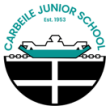STEAM (Science, Technology, Engineering, Arts, Maths)
Intent
At the heart of our new STEAM curriculum is a desire to provide our students with a global, future-focused perspective to inspire them to think big, develop problem solving skills, foster their creativity and address environmental issues which our world faces.
We are living in a time of exponential growth in human technological advancements and the future is drastically changing the world of work. The 4th industrial revolution means that 65% of tomorrow’s jobs do not even exist yet. Our students will build skills and understanding that will help to prepare them for the future. A future where we may one day colonise other worlds and augment ourselves with AI and technology.
To give focus and direction to our STEAM projects we will adopt the United Nations Sustainable development goals (below). Students will be asked to consider how they can use their developing knowledge and understanding to solve real world sustainability problems.

Implementation
- A range of engaging, innovative resources have been purchased, such as Lego WeDo 2.0 and Spheros.
- Each class will benefit from one STEAM day, per term – linked to their long-term planning and focussing on the UN Sustainable Development Goals.
- In March 2021, we will deliver a whole-school Science & STEAM week themed around terraforming Mars (something which at least 2 global companies are actively pursuing now).
- A lunchtime STEAM & Science Club will enable ‘ambassadors’ to trial new resources and peer-teach skills learned.
- External, innovative organisations who use technology for the benefit of the environment, such as Pollenize, Rubbish Science, The Rock Pool Project and The Eden Project will be approached and asked to present or collaborate with Carbeile.
- Parents working within local STEM roles will be invited in to speak to and share their experiences with students.
- A vertical recycled garden or a plastic bottle greenhouse will be constructed with the help of the whole school community.
- At the end of our first year delivering STEAM, we will hold a school-community consultation about how to take the subject forwards in its second year.
Impact
Our students will have a broader understanding of global issues, advances and opportunities. They will develop life-long skills such as critical thinking and problem solving which will serve them well wherever their future takes them. They will be more aware and, we hope, far more engaged in STEAM-related industries and organisations. In summary, our pupils will be far better prepared for a rapidly evolving future, with a deeper appreciation for our planet.

